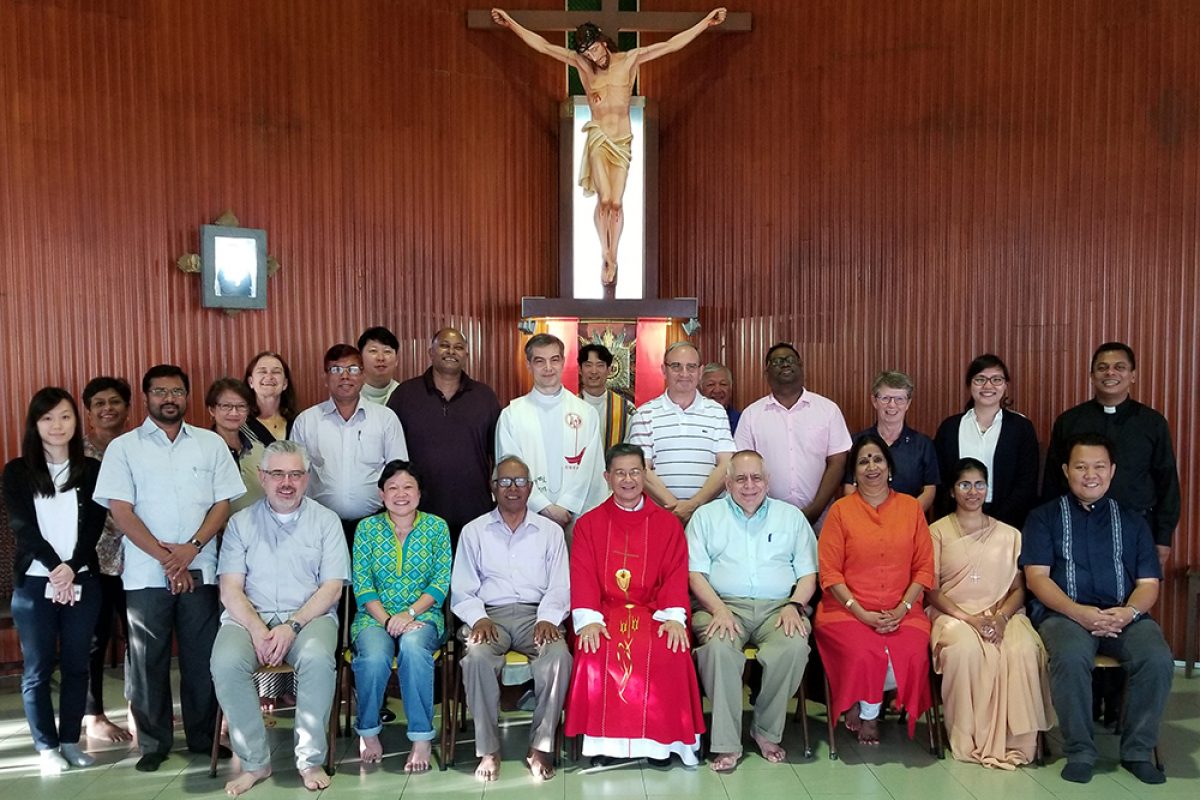Responding to the Needs of Migrants in Asia-Oceania

Members of the International Catholic Migration Commission in Asia and Oceania are working on effective responses to unaccompanied child migrants, advocacy for labor migrants’ rights, and efforts to eradicate human trafficking.
The International Catholic Migration Commission (ICMC) convened representatives of Catholic Bishops Conferences in Asia and Oceania in Johor Bahru, Malaysia, in early February 2018.
Participants discussed how to best respond to migration challenges in the region. They shared awareness-raising programs at the parish level and advocacy and networking practices with local NGOs.
Best practices to protect migrants include ensuring educational opportunities for migrants and their children as well as legal aid and counseling for victims of human trafficking.
Caritas Bangladesh updated participants on the situation of the approximately 700,000 Rohingya refugees who sought a haven in the country after fleeing Myanmar. The organization’s rapid response includes offering shelter, water and sanitation services, and psychosocial support in both makeshift camps and host communities.
Fr. Fabio Baggio, Co-Secretary of the Vatican’s Section on Migrants and Refugees, gave an overview of the Holy See’s 20 Action Points for the Global Compacts. Participants discussed how to best use the Vatican’s comprehensive action plan to lobby governments in support of the Global Compacts on Refugees and Migration, which should be adopted later this year.
Msgr. Robert J. Vitillo, ICMC’s Secretary General, briefed participants about the upcoming ICMC Council Meeting. The meeting will gather representatives from Catholic Bishops Conferences around the world from 6-8 March 2018 in Rome.
The ICMC Council will determine the organization’s strategic direction for the next four years as well as appoint its new Governing Committee and President.
Msgr. Vitillo stressed ICMC’s determination to continue carrying its mission “with careful attention to the needs, rights, and dignity of the millions of people [who] experience particular vulnerabilities since their journeys have been forced by threats of religious, ethnic, social, economic or political persecution or by circumstances of abject poverty, marginalization, or extreme climate change.”
The meeting in Johor Bahru, at the southern end of peninsular Malaysia, also saw the participation of Ms. Jackie Loo and Mr. Jehanzeb Anwar, Heads of ICMC’s Offices in Malaysia and Pakistan, respectively. These offices lead the operational efforts to serve and protect refugees and other people on the move in East and South East Asia.
The ICMC Asia-Oceania Working Group seeks to strengthen the voice of the Church in the region and foster coordination in the field of migration. It is part of a network of national Catholic Bishops Conferences and specialized agencies working on migration and refugee issues at the local and national level.
Participants in the Johor Bahru meeting encouraged the creation of a Secretariat for the Working Group to increase the collaboration between its members.
Since its creation in 2008, the Asia-Oceania Working Group has met annually in several countries. These meetings offer members the possibility to contribute to the development of more sustainable, collective responses to migration challenges in the region.